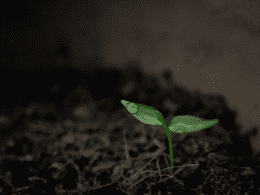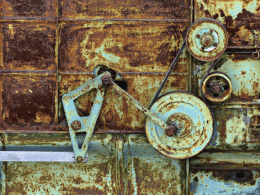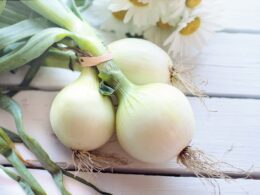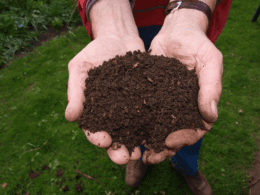Are you looking for a sustainable and environmentally-friendly way to compost organic matter? Look no further than nightcrawler composting, also known as worm farming.
By using European and African species of nightcrawlers to break down materials, you can improve soil texture and nutrient levels while reducing waste.
Nightcrawler composting is easy to get started with and requires only a few materials. With proper care and attention, you can create a thriving worm farm that not only benefits your garden, but can also be a profitable venture.
Plus, the process of nightcrawler composting is safe and natural, allowing you to reduce your impact on the environment while improving the health of your garden.
So let’s get started with this guide to nightcrawler composting!
Quick Takeaways
- Nightcrawlers are beneficial for composting as they break down organic matter, increase soil aeration, spread beneficial bacteria and improve soil texture and nutrient levels.
- Well-maintained outdoor compost piles can attract worms, or they can be manually added to composting bins with proper care and maintenance.
- European and African nightcrawlers are good choices for composting, and tips for keeping them alive include handling with care, monitoring temperature and moisture levels, using proper bedding material, and feeding well.
- Nightcrawler worm farming can be profitable, and they can live up to nine years, mate and lay eggs several times a year, and eat compostable materials. However, they mate fewer times a year than other worm species like Red Wigglers, which can double their population every sixty days.
Can Nightcrawler Composting Benefit from the Use of Wood Ashes?
Nightcrawler composting can benefit significantly from the use of wood ashes. Adding wood ashes to a compost pile can help boost its nutrient content, as wood ashes are rich in potassium and calcium, which are essential for plant growth. The alkaline nature of wood ashes can also help balance the pH levels in the compost, creating favorable conditions for the nightcrawlers. So, next time you’re composting, remember to boost compost with wood ashes for a healthier, nutrient-rich pile.
Benefits of Nightcrawlers
You’ll appreciate the benefits of nightcrawlers for composting. These worms are excellent at improving soil texture and nutrient levels, increasing soil aeration, and spreading beneficial bacteria.
Nightcrawlers are particularly useful for organic waste management, as they can break down organic matter and turn it into nutrient-rich compost that can be used to fertilize plants and crops. Improving soil is essential for successful gardening and farming, and nightcrawlers can help make this task more manageable.
By using these worms in your compost pile or worm farm, you can create nutrient-rich soil that’ll support healthy plant growth. In addition, nightcrawlers are excellent at breaking down organic matter, which means that you can reduce your waste and contribute to a more sustainable future.
Getting Started
To start, maintain a well-managed compost pile or add worms manually to a composting bin. You can attract worms naturally by keeping your compost pile healthy and free of toxins. Alternatively, you can purchase European or African nightcrawlers from suppliers and manually add them to a composting bin.
Keep in mind that you need to choose the right container for your worms. A large, opaque lidded container with drainage and ventilation holes is essential for proper worm care.
Once you have your container, it’s important to take proper care of your worms. Handle them with care, monitor temperature and moisture levels, use proper bedding material, and feed them well.
Long strips of soaked newspaper should be used to line the bottom of the container, and you should add food scraps, grass, dead leaves, and coffee grounds once a week.
By choosing the right container and providing proper worm care, you can successfully start your nightcrawler composting journey and reap the benefits for your soil and plants.
Can I Use Nightcrawler Composting in Combination with Mushroom Compost for My Garden?
Yes, you can use nightcrawler composting in combination with mushroom compost for your garden to boost your garden with mushroom compost. Nightcrawler composting adds beneficial microbes and improves soil structure, while mushroom compost enriches the soil with essential nutrients for healthy plant growth.
Nightcrawler Worm Farming
If you’re looking to turn your worm composting hobby into a profitable venture, consider expanding into breeding and selling nightcrawlers for other composters to use. Nightcrawlers eat compostable materials and can live up to nine years, making them a valuable asset to any composting operation.
Here are some tips for entering the world of nightcrawler worm farming:
-
Harvesting compost: Once your nightcrawlers have produced a healthy amount of compost, it’s time to harvest it. Use a screen or sifter to separate the compost from the worms, being careful not to harm any of the worms in the process.
-
Marketing strategies: Consider selling your worms to local garden centers, farmers markets, or online through your own website or a platform like Etsy. Make sure to highlight the benefits of using nightcrawlers in composting, such as their ability to break down organic matter and improve soil texture and nutrient levels. Offer competitive pricing and excellent customer service to attract and retain customers.
Frequently Asked Questions
How can I tell if my nightcrawlers are healthy and thriving in my compost bin?
To check if your nightcrawlers are healthy, look for signs such as active movement, pinkish coloring, and a lack of foul odors. Troubleshooting compost bin issues involves monitoring moisture and temperature levels, avoiding overfeeding, and removing any dead worms promptly.
Are there any types of food scraps or materials that should not be added to a nightcrawler compost bin?
Avoid adding contaminated materials like meat, dairy, and pet waste to your nightcrawler compost bin. Optimal conditions require a balance of moisture and food scraps. Alternative composting methods include Bokashi and hot composting for these materials.
Can nightcrawlers be used for anything besides composting?
Nightcrawlers have alternative uses besides composting. They can be used as bait for fishing and as a protein source for some animals. Benefits include easy maintenance and long lifespan, but drawbacks include the need for proper storage and susceptibility to disease.
How do I harvest the compost from my nightcrawler bin?
To harvest your nightcrawler bin’s compost, separate the worms from the compost using a screen. The compost is ready when it’s dark and crumbly. Use it in your garden for improved Compost quality. To make vermicompost tea, mix the compost with water and let it steep for a few days.
Are there any predators or pests that I need to watch out for when raising nightcrawlers for composting?
To keep predators away from your nightcrawlers, predator control is key. Natural remedies like using diatomaceous earth or creating barriers with coffee grounds can help. Keep an eye out for ants and beetles.









